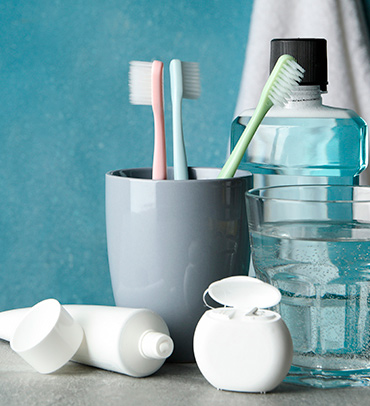Dentin sensitivity; It is a sudden, sharp and short-term pain due to exposed dentin that cannot be explained by any dental condition that occurs after hot, cold foods, air, toothbrushes, eating utensils such as cutlery and dental tools come into contact with the teeth, or after consuming sugary or acidic food and beverages. It passes after the stimulus disappears.
Dentin Sensitivity
Dentin sensitivity refers to sudden sharp and short-lasting pains caused by exposed dentin, which cannot be explained by any dental condition, triggered by contact with hot or cold foods, air, toothbrushes, utensils such as forks and spoons, and dental instruments, or consumption of sugary or acidic food and beverages. The pain subsides once the stimulus is removed.
Dentin sensitivity is most commonly observed between the ages of 20 and 40. It has been reported that individuals who use their right hand while brushing tend to experience more sensitivity on the side of their teeth facing the cheek, especially on the left side, whereas those who use their left hand experience more sensitivity on the teeth's right side.
How is Dentin Sensitivity Treated?
Firstly, the cause of dentin sensitivity is investigated. Treatment involves three stages:
- In the first stage, habits causing sensitivity are addressed, and non-invasive interventions that patients can apply at home, such as desensitizing toothpaste, are recommended.
- In the second stage, the dentist performs desensitizing treatments. Applications such as medications or laser treatments are used to cover the exposed dentin on the tooth surface.
- If sensitivity persists, the final stage may involve invasive treatments such as fillings, root canal therapy, dental crowns, or gum treatments.
Recommendations for Patients with Dentin Sensitivity
Patients with dentin sensitivity are advised:
- If they cannot avoid acidic beverages, they should consume them no more than once a day. Consuming acidic foods cold increases their erosive effects, so avoiding cold consumption is advisable.
- Teeth should not be brushed immediately after consuming acidic foods. They should be rinsed with mouthwash. Brushing should be done at least half an hour later.
- Fruits should be consumed without prolonged exposure in the mouth.
- If the patient experiences problems like vomiting after meals, they should seek assistance promptly. Similarly, after vomiting, they should rinse with water and wait at least half an hour before brushing.
- Desensitizing toothpastes should be preferred over abrasive toothpastes.
- Patients with sensitivity should use soft-bristled brushes and practice effective brushing techniques.
- A night guard should be made for patients with parafunctional habits like bruxism to eliminate these habits.
The above information is for patient education purposes only and does not substitute medical examination or diagnosis. If you have sensitivity issues, please contact Cafe Diş to schedule an appointment and consult our experienced dentists.
